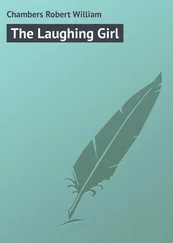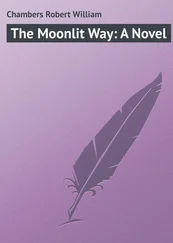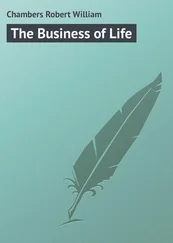Robert Chambers - The Girl Philippa
Здесь есть возможность читать онлайн «Robert Chambers - The Girl Philippa» — ознакомительный отрывок электронной книги совершенно бесплатно, а после прочтения отрывка купить полную версию. В некоторых случаях можно слушать аудио, скачать через торрент в формате fb2 и присутствует краткое содержание. Жанр: foreign_prose, на английском языке. Описание произведения, (предисловие) а так же отзывы посетителей доступны на портале библиотеки ЛибКат.
- Название:The Girl Philippa
- Автор:
- Жанр:
- Год:неизвестен
- ISBN:нет данных
- Рейтинг книги:3 / 5. Голосов: 1
-
Избранное:Добавить в избранное
- Отзывы:
-
Ваша оценка:
- 60
- 1
- 2
- 3
- 4
- 5
The Girl Philippa: краткое содержание, описание и аннотация
Предлагаем к чтению аннотацию, описание, краткое содержание или предисловие (зависит от того, что написал сам автор книги «The Girl Philippa»). Если вы не нашли необходимую информацию о книге — напишите в комментариях, мы постараемся отыскать её.
The Girl Philippa — читать онлайн ознакомительный отрывок
Ниже представлен текст книги, разбитый по страницам. Система сохранения места последней прочитанной страницы, позволяет с удобством читать онлайн бесплатно книгу «The Girl Philippa», без необходимости каждый раз заново искать на чём Вы остановились. Поставьте закладку, и сможете в любой момент перейти на страницу, на которой закончили чтение.
Интервал:
Закладка:
"I could not imagine Sister Eila judging anybody harshly."
Sister Eila looked up and laughed:
"Oh, Mr. Halkett, I have confessed to impatience too many times to believe that I could ever acquire patience. Only today I scolded our children because they tore down a poster which had been pasted on the public wall at the crossroad. I said to them very severely, 'It is a sin to destroy what others have paid for to advertise their merchandise.'"
"That was a terrible scolding," admitted Halkett, laughing.
"I'll show you the poster," volunteered Sister Eila, going over to her desk. Raising the lid, she picked up and displayed an advertisement.
CHAPTER VIII
Halkett looked curiously at this specimen of a poster which was already very familiar to him. The dead walls of northern and eastern France and Belgium had been plastered with such advertisements for the last year or two, extolling the Savon de Calypso. But what had recently interested Halkett in these soap advertisements was that posters, apparently exactly similar, appeared to differ considerably in detail when examined minutely.
The picture in this advertisement represented, as always, the nymph, Calypso, seated upon the grass, looking out over the sea where the sun shone in a cloudless sky upon a fleet of Grecian ships which were sailing away across the blue waves of the Ægean.
Where details varied was in the number of ships in the fleet, the number and grouping of sails, sea birds flying, of waves, and of clouds – when there were any of the latter – the number of little white or blue or pink blossoms in the grass, the height of the sun above the horizon line and the number and size of its rays.
There was always at least one ship – never more than a dozen; he had counted twenty white blossoms on some posters; varying numbers on others, of white, of blue, or of pink, but never less than three of any one color. Sometimes there were no sea birds.
As for the sun, sometimes it hung well above the ocean, often its yellow circle dipped into it, and then again only the rays spread fanlike above the horizon line.
And concerning the nymph, her pose and costume did not seem to vary at all in the various poster specimens which he had seen; the wind was always blowing her red hair and white, transparent scarf; she always sat gazing laughingly seaward, one hand resting on the grass, the other clutching a cake of soap to her bosom.
Still examining the sheet of paper, he counted the white flowers scattered over the grass around the seated nymph. There were ten of them.
"Sister Eila," he said carelessly, "how many kilometers is it to the next town south of us? I mean by the military road."
"To Rosières-sous-Bois?"
"Yes."
"About ten kilometers by the military road."
He nodded and counted the ships. There were three.
"Is there more than one road which runs to Rosières-sous-Bois?" he asked.
"Yes. One may go by this road, or cross the bridge by the quarries and go by the river road, or there is still a better and shorter highway which runs west of Saïs."
"Then there are three main roads to Rosières-sous-Bois?"
"Yes. The road to the west is shorter. It is not more than seven miles that way."
Halkett casually counted the sea gulls. Seven gulls were flying around one of the ships; thirteen around another.
"And the river road, Sister?" he inquired.
"By the quarry bridge? Oh, that is longer – perhaps twelve or thirteen kilometers."
"I see… Rosières-sous-Bois is not a garrison town?"
"No. There are only a few gendarmes there."
Halkett examined the picture attentively. The sun appeared to be about three hours high above the horizon.
"The nearest military post must be about three hours' journey from here," he ventured.
Sister Eila thought a moment, then nodded:
"Yes, about three hours. You mean the fort above the Pass of the Falcons? That is the nearest."
He counted the rays of the sun. There were three long ones and two short ones.
"I suppose there are three or four battalions garrisoned there," he remarked.
"Three, I think. And a company of engineers and one company of Alpine chasseurs."
All the time, with a detached air, the young Englishman was examining the colored poster, searching it minutely for variations from other posters of the same sort which he had recently investigated.
There remained in his mind little or no doubt that the number and position of the groups of pointed wavelets signified something important; that the number of sails set on the ships, which varied in every poster, contained further information; that the sky, cloudless in some posters, dotted with clouds in others, was destined to convey topographical particulars to somebody.
These colored advertisements of a soap made in Cologne by Bauermann and Company, and plastered over the landscape of Northern and Eastern Belgium and France, concealed a wealth of secret information for anybody who possessed the key to the messages so clearly and craftily expressed in pictograph and cipher code.
The sinister significance of the sheet in his hand was becoming more apparent every minute. He had made a study of these posters – was just beginning to find them interesting, when he had been ordered to America. Now, all his interest in them returned.
Sister Eila had seated herself at her desk, and, while he was still examining the poster, she continued serenely to correct the pile of inky copybooks.
He watched her for a while, where she bent above the scrawled pages, her pen poised, her lovely face framed in the snowy wimple under the pale shadow of her wide-winged coiffe.
"Sister Eila?"
She turned her head tranquilly.
"You are English, you tell me?"
"Irish." She smiled.
"It's the same. Tell me, have you had enough experience in your world of duty and of unhappiness to know an honest man when you encounter him?"
Sister Eila laid aside her pen and turned toward him.
"I don't think I understand," she said.
"I mean, could you make up your mind about – well – about such a man as I am – merely by inspecting me and hearing me speak?"
Sister Eila laughed:
"I think I could very easily."
"Have you already done so?"
"Why, yes, I suppose so."
"Do you think I am honest enough to be trusted?"
Sister Eila laughed again, deliciously.
"Yes, I think so," she said.
He remained silent and his face, already grave, grew more serious. Sister Eila's smile faded as she watched him. It was becoming very plain to her that here was a man in trouble.
Silent there together in the cool stillness of the schoolroom, they heard the distant clatter of little feet, the vigorous voice of command from Sister Félicité; and a moment later a double file of chattering children passed in the sunshine outside the window, led toward their noonday playground by Sister Félicité accompanied by Warner.
"What is on your mind, Mr. Halkett?" asked Sister Eila, still watching him.
"If I tell you," he said, "will you ask me no more than I offer to tell you?"
She flushed:
"Naturally, Monsieur – "
"You don't quite understand, Sister. What I have to say I wish you to write down for me in the form of a letter of information to the French Government."
"You wish me to write it?"
"Please. And that is what I mean. Naturally, you might ask me why I do not write it myself… Don't ask me, Sister… If you really do trust me."
He turned, met her gaze, saw two clear, sweet eyes unspoiled and unsaddened by the wisdom she had learned in dark and wretched places; saw in them only a little wonder, a faintly questioning surprise.
"What is your answer, Sister?" he asked.
"My answer is – I – I do trust you… What am I to write?"
Читать дальшеИнтервал:
Закладка:
Похожие книги на «The Girl Philippa»
Представляем Вашему вниманию похожие книги на «The Girl Philippa» списком для выбора. Мы отобрали схожую по названию и смыслу литературу в надежде предоставить читателям больше вариантов отыскать новые, интересные, ещё непрочитанные произведения.
Обсуждение, отзывы о книге «The Girl Philippa» и просто собственные мнения читателей. Оставьте ваши комментарии, напишите, что Вы думаете о произведении, его смысле или главных героях. Укажите что конкретно понравилось, а что нет, и почему Вы так считаете.












